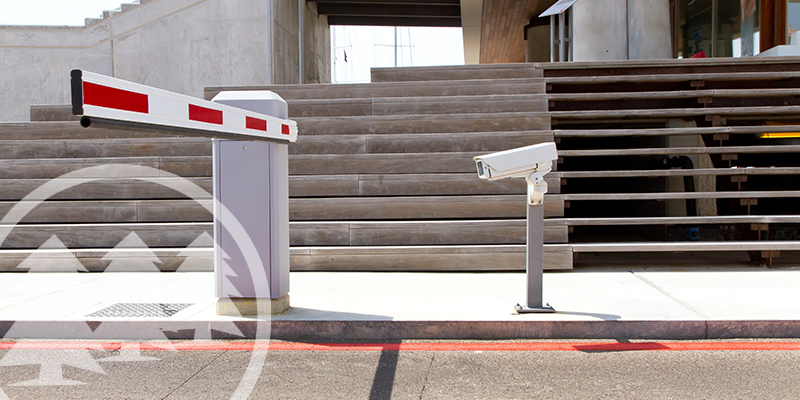Should association boards allow the installation of license plate readers in HOA communities? As with many decisions, the answer is not all black and white. Boards must take everything into consideration.
The Benefits of License Plate Readers in HOA Communities
License plate readers have become a hot topic among many homeowners associations. There is a general debate over whether or not it is a good idea to have them in communities. But what is a license plate reader camera in the first place?
A license plate reader camera is exactly as it sounds. It is a camera that captures vehicle license plates — be it in static form or video form. Some cameras, particularly the more advanced ones, can even capture the vehicle type, color, make, state, bumper stickers, roof racks, and decals.
While installing a license plate reader might seem like an easy decision, HOA boards should always consider the pros and cons, especially for big undertakings like this.
Here are the license plate reader benefits your board should take into account.
1. May Promote Security
There is a wide-reaching belief that license plate readers may promote security within the community. Because these cameras can capture stills or videos of vehicles, they may help deter vehicle-related crimes, though there is no real evidence that they do. Additionally, in gated communities, these cameras may help control access, only allowing authorized vehicles into the neighborhood.
2. May Help Solve Crimes
 In the event of a serious crime, an association’s license plate readers may assist police investigations. An association may submit evidence collected by the readers to local law enforcement.
In the event of a serious crime, an association’s license plate readers may assist police investigations. An association may submit evidence collected by the readers to local law enforcement.
3. May Not Increase HOA Liability
While not really a benefit, a license plate reader’s effect — or lack thereof — on an HOA’s liability should still be considered. Attorneys believe that associations are not more prone to liability upon the installation of such cameras. More often than not, homeowners are more concerned about the lack of security in a community.
The Pitfalls of License Plate Readers in HOA Communities
When considering a decision, HOA boards should look to federal, state, and local laws first. But, sometimes, no such laws exist to guide the decision-making process. This is the case for license plate readers. While some states have laws that address biometric data, license plate reader laws are scarce to non-existent.
Even if your state laws permit them, though, it is still important to look at the downsides of license plate readers. Here are some that your board should consider.
1. More Resources Required
An HOA board can’t adopt a set-it-and-forget-it attitude when installing license plate readers. This kind of technology requires constant maintenance. Boards should set aside both time and money for the upkeep of these cameras. Additionally, if an HOA decides to retain footage or stills for a set amount of time, it will need ample storage.
2. Privacy Issues
Perhaps the biggest issue with license plate readers is privacy. Homeowners will undoubtedly express privacy concerns whenever there are cameras in the neighborhood. In fact, it has already happened to many communities across the country, with some even taking legal action against their association.
It is normal to encounter pushback from residents, especially if your board is introducing a new rule or system. But, it is easy to defend things like HOA vehicle rules. In comparison, with license plate readers, it is hard to argue against the right to privacy.
3. Technological Errors
Technology, advanced as it may be, can still make mistakes. A license plate reader may incorrectly scan and interpret data from recordings. This can lead to improper allegations and potential liability. A homeowner may be subject to all kinds of negativity even though they were never in the wrong and the reader merely made an error.
What to Do Before Installing a License Plate Camera in HOA
If an HOA board decides to push through with the installation of license plate cameras, there are a few things to check off before proceeding.
Let Residents Know
 The first thing an association should do is notify the homeowners. Let them know that the HOA will be installing residential license plate readers throughout the community. It is also best to explain to homeowners how the board arrived at such a decision and what benefits these readers pose. Depending on the governing documents, an HOA may need to secure a majority vote of approval from the membership before installing anything.
The first thing an association should do is notify the homeowners. Let them know that the HOA will be installing residential license plate readers throughout the community. It is also best to explain to homeowners how the board arrived at such a decision and what benefits these readers pose. Depending on the governing documents, an HOA may need to secure a majority vote of approval from the membership before installing anything.
In addition to providing notice, an HOA should also post signs where the cameras are situated. These signs should be easily visible. It is important to maintain transparency between the board and the homeowners. This way, homeowners won’t feel like the board is trying to hide anything and will have more trust in the board’s decisions.
Create a License Plate Reader Policy
The next thing an HOA board should do is create a policy surrounding license plate readers. A policy will allow the association to adopt a standardized procedure when it comes to the installation and usage of these cameras.
A good policy should state the purpose of the license plate readers. It should also outline what actions should follow after the footage is created, what to do about requests for the footage for evidence, who can view the footage, and how people can request to view the footage. Finally, the policy should indicate how long the association will keep the footage and how it will dispose of the footage.
Consider the License Plate Reader Cost
The last thing an association should do is consider the cost of the cameras. License plate readers don’t come cheap. Typically, associations must shell out a substantial sum of money to install the readers and the system itself. It also costs money to maintain and repair these cameras, so an association should be prepared to shoulder these ongoing expenses as well.
The Decision Is Yours
The idea of license plate readers in HOA communities has been met with mixed reactions. Some associations like them for the added security — or the perception of it. Most of the time, residents dislike these cameras because they interfere with their privacy. No matter the decision, an HOA board should take every aspect of the situation into account.
Cedar Management Group provides expert HOA management services to planned communities and condominiums. Call us today at (877) 252-3327 or contact us online to request a free proposal!
RELATED ARTICLES:
- HOA Electric Vehicle Charging: Can Stations Be Installed In HOA Communities?
- What’s The Real Deal About Police Vehicles In An HOA Community?
- Should Towing In An HOA Community Be Allowed?






